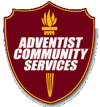AY Honors/Tutoring/Answer Key
1. Be at least in the 8th grade.
2. Read the story of Philip tutoring the Ethiopian eunuch in Acts 8:26-40.
26 Now an angel of the Lord spoke to Philip, saying, “Arise and go toward the south along the road which goes down from Jerusalem to Gaza.” This is desert. 27 So he arose and went. And behold, a man of Ethiopia, a eunuch of great authority under Candace the queen of the Ethiopians, who had charge of all her treasury, and had come to Jerusalem to worship, 28 was returning. And sitting in his chariot, he was reading Isaiah the prophet. 29 Then the Spirit said to Philip, “Go near and overtake this chariot.”
30 So Philip ran to him, and heard him reading the prophet Isaiah, and said, “Do you understand what you are reading?”
31 And he said, “How can I, unless someone guides me?” And he asked Philip to come up and sit with him. 32 The place in the Scripture which he read was this:
“He was led as a sheep to the slaughter; And as a lamb before its shearer is silent, So He opened not His mouth. 33 In His humiliation His justice was taken away, And who will declare His generation? For His life is taken from the earth.”[a] 34 So the eunuch answered Philip and said, “I ask you, of whom does the prophet say this, of himself or of some other man?” 35 Then Philip opened his mouth, and beginning at this Scripture, preached Jesus to him. 36 Now as they went down the road, they came to some water. And the eunuch said, “See, here is water. What hinders me from being baptized?”
37 Then Philip said, “If you believe with all your heart, you may.”
And he answered and said, “I believe that Jesus Christ is the Son of God.”[b]
38 So he commanded the chariot to stand still. And both Philip and the eunuch went down into the water, and he baptized him. 39 Now when they came up out of the water, the Spirit of the Lord caught Philip away, so that the eunuch saw him no more; and he went on his way rejoicing. 40 But Philip was found at Azotus. And passing through, he preached in all the cities till he came to Caesarea.
3. Describe the social conditions that make it more difficult for underprivileged children to achieve basic reading and math skills during elementary school
A variety of factors influence achievement in school. IQ is an important factor but not a social condition.
- drug and alcohol abuse in the home hurts children
- unstable marriages/unstable living envirnonment
- children shuffled from one parent to the other to grandparents may feel unstable and may miss school
- an unhealthy living environment can cause sickness and missing school
- parents who lack a good education have a hard time teaching skills, helping with homework, or reading with and to their children
- immigrant families may lack English skills - and poor English at home can make progress in school difficult
- some families are forced to move regularly, which destablizes the child. It may mean changing schools which means a lack of continuity
- children may have to work or watch siblings, cutting into homework time
- poor nutrition and hunger (for economic reasons or lack of nutrition knowledge) will immediately drop school performance. A hungry kid has a hard time learning.
- children who are abused emotionally, physically or sexually often struggle academically
- poor families can not afford extra curricular activities that enhance learning.
- inner city schools are notoriously under funded, may not attract the best teachers, and spend significant time and effort on discipline and safety and the expense of instructional time.
4. Explain the major types of community-based tutoring programs:
a. In-school, cross-age tutoring
Older students helping younger students. Advantages include:
- tutoring reinforces previous concepts for the older student
- increases understanding and relationships between students in different classes and may even reduce bullying
- builds qualities like responsibility, willingness to help others in older students

